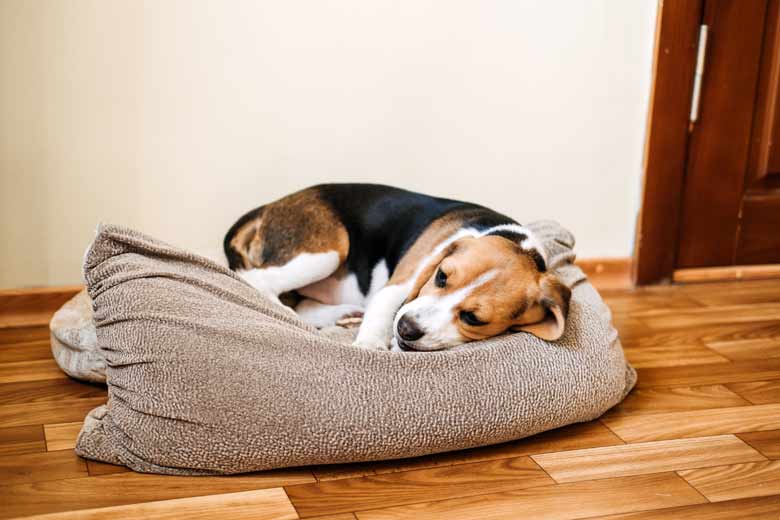
Is the name given to a common condition in dogs that affects the throat, trachea (windpipe) and on rare occasions the lungs. It is most commonly characterised by a dry harsh hacking cough. Dogs will often cough so much that they will dry retch and gag, often producing white frothy saliva. Owners will often comment that it appears as though something is stuck in the dog’s throat.
Kennel cough can be caused by a whole variety of different viruses or bacteria. Unfortunately we can only vaccinate against the two most common strains. Because of this, some dogs vaccinated with kennel cough can still contract the disease. However, their disease is usually a lot milder and not as prolonged as those not vaccinated against kennel cough. It is also much less likely that the disease will progress to pneumonia if the dog is vaccinated.
Kennel cough is very contagious. It is transmitted by respiratory secretions by direct nose to nose contact or via aerosol transmission eg. sneezing or coughing. It occurs most frequently in kennelled dogs, however dogs can also contract it just by sniffing noses through a fence or while on a walk.
The cough normally has a sudden onset and occurs within 3 to 10 days of being in kennels or having been exposed to an infected dog. Most dogs will appear healthy apart from the annoying cough. The majority will also have a fairly normal appetite although some become lethargic and inappetant with a fever. On very rare occasions and depending upon the bug which caused the disease, kennel cough can spread to the lungs and cause pneumonia.
Treatment
Treatment for kennel cough will give your dog relief, shorten the course of disease while also helping to prevent pneumonia. Treatment includes a short course of antibiotics and if required a cough suppressant can also help relieve your dog. Sometimes an anti inflammatory injection is also given to help ease the throat.
The cough should start to improve within 3-5 days of beginning treatment. Sometimes the cough can get a lot worse before it improves. Any deterioration in your dog’s health should be brought to our attention as this may be the sign of a developing pneumonia and we may then recommend chest radiographs to confirm this.
Due to the extremely contagious nature of this disease it is important to keep your dog away from other animals for 2 weeks after the cough has resolved. It is also important to keep your dog confined and limit exercise as activity tends to irritate the windpipe further which in turn worsens the cough. Also make sure your pet is kept warm, especially at night, as cold air tends to irritate the throat further.
If your dog has a cough and you are making an appointment to bring him or her to the clinic for a checkup, please inform us and wait in the car so that we are not exposing other patients to a potentially infectious cough.